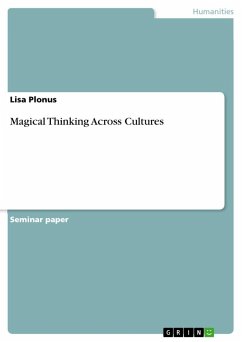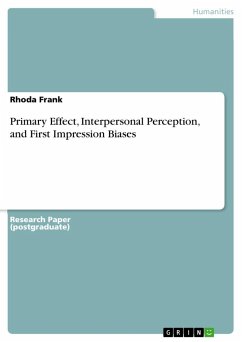Seminar paper from the year 2022 in the subject Psychology - Miscellaneous, grade: 1,3, University of Applied Sciences Hamm-Lippstadt, language: English, abstract: In the past decades, much research has been conducted on the topic of magical thinking. Nevertheless, it is a rather poorly discovered topic. The construct is applied in various research areas and can help to describe the behavior of people. To better understand magical thinking within the framework of cross-cultural psychology, the concept is defined, and the relation to culture and reasons for magical thinking are explained in the following work. By means of a qualitative study with German students, the concept is examined in more detail with the aim to highlight commonalities as well as differences to existing literature. Finally, the results are interpreted and related to culture, cognition, and consumer behavior. Magical thinking can be described as the belief that certain actions can influence objects or events when there is no empirical causal connection between them. This definition already highlights the core of the concept: Magical thinking is detached from science and is also referred to as failure of rationality by researcher. What many definitions of magical thinking have in common is the connection of the concept to something supernatural. Furthermore, the belief and awareness of the interconnectedness of all things in the world is also assumed to be a possible cause of magical thinking. Nemeroff and Rozin, who have studied the topic of magical thinking very intensively, have developed a working definition of magical thinking, which is the basis of this work. Their definition consists of five dimensions: The first dimension describes that magical thinking is an intuitive and universal aspect of human thinking. Second, these thought patterns are outlined as making no sense and being detached from scientific theories. The third dimension indicates that magical thinking is a subjective process carried out by individuals. As a fourth aspect, the researchers mention the multidimensionality of magical thinking and that it influences cognitive, emotional, and social functions of individuals. Fifth, the authors state that magical thinking in its most typical way adopts the principles of sympathetic magical thinking. This kind of magical thinking will be discussed in more detail in the further course of this work.
Hinweis: Dieser Artikel kann nur an eine deutsche Lieferadresse ausgeliefert werden.
Hinweis: Dieser Artikel kann nur an eine deutsche Lieferadresse ausgeliefert werden.








